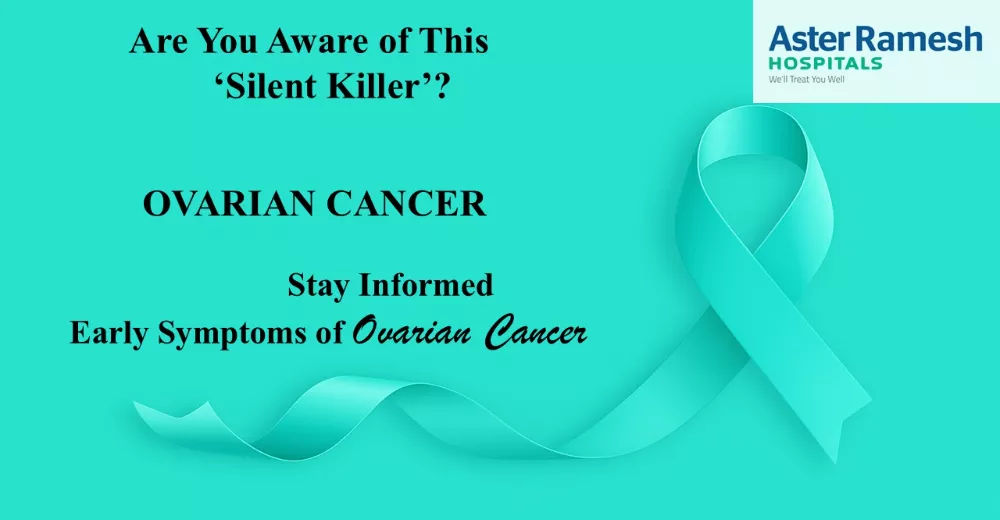Ovarian cancer is often called the “silent killer” because its early symptoms of ovarian cancer are vague, easily mistaken for other common health issues, and often go unnoticed until the disease has reached an advanced stage.
Let’s take a closer look at what ovarian cancer is, who is at risk, and how it can be managed.
What Is Ovarian Cancer?
Ovarian cancer arises from the ovaries, which are part of the female reproductive system. The ovaries are responsible for producing eggs and hormones like oestrogen and progesterone. This type of gynaecologic cancer is a major health concern for women’s health.
Who Is at Risk?
- Epithelial ovarian cancer, the most common types of ovarian cancer, usually affects older women.
- Germ cell tumours and stromal tumours are more common in younger women.
What Are the Common Causes or Risk Factors?
While the exact cause is not always known, some known risk factors here
- Older age
- Family history of ovarian, breast, or colorectal cancer
- Early menstruation (menarche) and late menopause
- Never having children (nulliparity)
- Obesity
Is There a Way to Screen or Prevent Ovarian Cancer?
Unfortunately, there is no effective routine ovarian cancer screening test for ovarian cancer in the general population. However, the following strategies can help:
- Awareness and Early Evaluation: Recognizing early symptoms of ovarian cancer and seeking timely medical evaluation can help detect cancer at an earlier, more treatable stage.
- Genetic Testing: If you have a strong family history of ovarian, breast, or colon cancer, your doctor may recommend genetic testing (e.g., for BRCA mutations). If positive, you may be offered:
- Preventive surgery (removal of ovaries and fallopian tubes)
- Enhanced screening and follow-up
- Healthy Lifestyle: Maintaining a healthy weight, eating a balanced diet, and doing regular exercise may reduce your risk.
What are the Common Symptoms of Ovarian Cancer?
Pay attention to symptoms that are persistent and unusual for you. These may include:
- Bloating of the abdomen
- Lower abdominal or back pain
- Feeling full quickly while eating
- Frequent urination or constipation
- Unexplained fatigue
If you experience these symptoms regularly, consult a specialist.
How Is Ovarian Cancer Diagnosed?
Diagnosis typically involves:
- Blood tests (tumour markers like CA-125)
- Imaging tests – Ultrasound, CT, or MRI scans; sometimes a PET-CT
- In some cases, surgery is required to confirm the diagnosis and assess the ovarian cancer stages.
What Are the Treatment Options?
Treatment depends on the ovarian cancer stages. The main options include:
- Surgery: To remove the tumour, ovaries, and sometimes nearby tissues.
- Chemotherapy: Medications to kill cancer cells, usually given after surgery (sometimes before).
- Targeted Therapy: Advanced drugs that attack specific cancer cells (e.g., PARP inhibitors for BRCA-positive patients).
When diagnosed early, the ovarian cancer prognosis is much better, and there is a higher ovarian cancer survival rate.
What Happens After Treatment?
Even after completing treatment, regular follow-up with your doctor is essential. He/she may ask for Blood tests (e.g., CA-125), Imaging scans if needed and they will Discuss about any ongoing symptoms bothering you or side effects of previous treatment.






